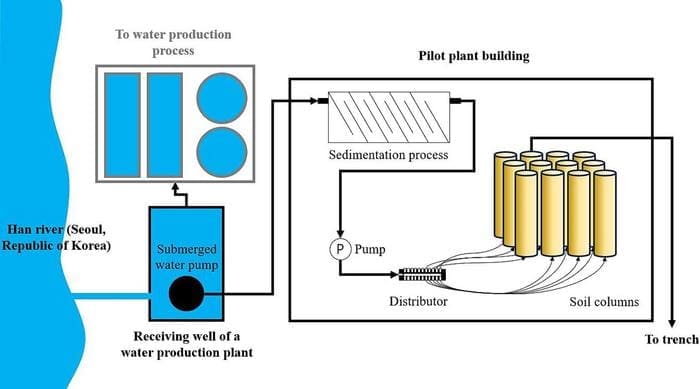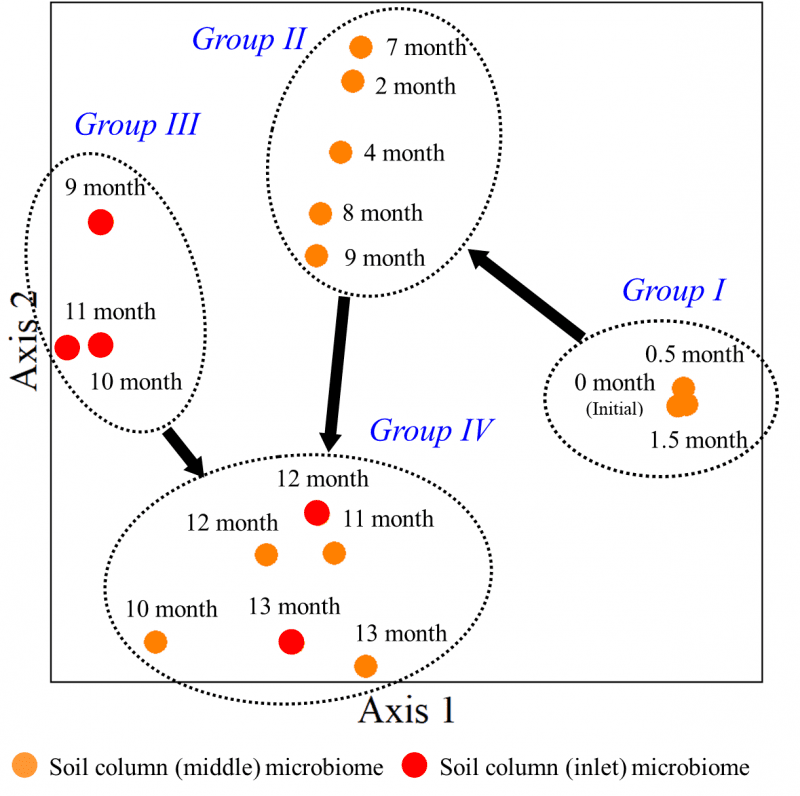In recent years, the global water cycle has been increasingly disrupted by the effects of climate change, leading to more frequent floods and droughts. This growing instability in water availability has prompted efforts to find sustainable solutions for water storage, particularly in regions prone to seasonal extremes.
As a response, countries like the United States, the Netherlands, and Australia have embraced aquifer storage technologies. In South Korea, where heavy summer rains often lead to floods and dry spells, such technologies are gaining attention, especially for rural and island regions struggling with reliable water supply.

A breakthrough in this field has come from the Center for Water Cycle Research at the Korea Institute of Science and Technology (KIST). Scientists Dr. Seongpil Jeong and Kyungjin Cho have been at the forefront of this development, working on a long-term aquifer storage technique that enhances the possibility of storing and supplying water in a stable manner.
Their research not only addresses current water management challenges but also paves the way for a future where clean, reliable water storage can become a reality, even in the face of climate-induced extremes.
The results of this research were published in the latest issue of the international journal Chemical Engineering Journal.
Aquifer storage and recovery (ASR) is a method that involves injecting surface water into underground aquifers for later use. However, the practice faces challenges, particularly in relation to water quality. One such challenge is pore clogging within the aquifer, caused by microorganisms feeding on the organic matter in the injected water.
The KIST research team had previously demonstrated that artificial raw water, when introduced into simulated aquifer storage conditions, could have its organic carbon content reduced by microorganisms. Building on this, the team sought to explore how the process would work with real river water, a more complex and dynamic source.
In their study, Dr. Jeong and Cho tested a long-term aquifer storage system using river water under simulated conditions. The experiment spanned 13 months, during which river water was injected into a sandy layer of ground at two-week intervals. Water was then withdrawn after two weeks to observe how organic matter and microorganisms evolved over time.
The results were promising. Despite fluctuations in river water quality due to seasonal changes, the concentration of organic matter within the aquifer system remained stable, and no pore clogging occurred.

This stability was maintained through a simple physical sedimentation process, without the need for chemical treatment. The ability to sustain water quality under these conditions suggests that aquifer storage systems, if properly managed, could offer a reliable means of water storage even as climate change alters water availability patterns.
A key component of the study was understanding how microorganisms in the aquifer contribute to the stability of the system. By analyzing the microbiome over the course of the experiment, the researchers discovered that microbial communities adapt to seasonal variations in the organic matter present in river water. This adaptation helps reduce organic carbon levels, which in turn prevents pore clogging – a critical factor for the long-term success of ASR systems.
This finding is crucial for the practical application of aquifer storage technology, as it highlights the need for careful monitoring and management of microbial communities within the system to ensure sustained water quality.
Aquifer storage technologies have been recognized globally as a potential solution to water scarcity, particularly in regions vulnerable to climate-induced hydrological extremes. The KIST team’s work offers new insights into how these systems can be optimized for stability and sustainability, making them more reliable for long-term water storage.
The techniques used in this study can be applied to assess domestic aquifer storage sites in South Korea, potentially guiding the development of pretreatment processes for various types of influent water. Continued analysis of organic matter and microorganisms will be vital to ensuring that these systems operate effectively over the long term. Additionally, water quality assessments of the recovered water and appropriate pretreatment processes must be in place to guarantee safe and stable storage.
“This research contributes to the stable operation of aquifer storage technology, which is being utilized as a large-scale water storage technology to address the problem of water supply imbalance,” said Dr. Cho. He also emphasized that the study represents a global first in long-term organic matter and microbiome changes in a pilot-scale aquifer simulation system, offering promising opportunities for future expansion of the technology.
Journal Reference:
Ana Gabriela Chuquer Licto, Hye-Won Kim, Jae-Woo Choi, Seunghak Lee, Kyungjin Cho, Seongpil Jeong, ‘Comprehensive assessment for the seasonal variations of organic compounds and core soil microbiome in the simulated pilot-scale aquifer storage and recovery (ASR) system’, Chemical Engineering Journal 496 (2024). DOI: 10.1016/j.cej.2024.154137
Article Source:
Press Release/Material by National Research Council of Science & Technology
Featured image credit: Pixabay | Pexels




